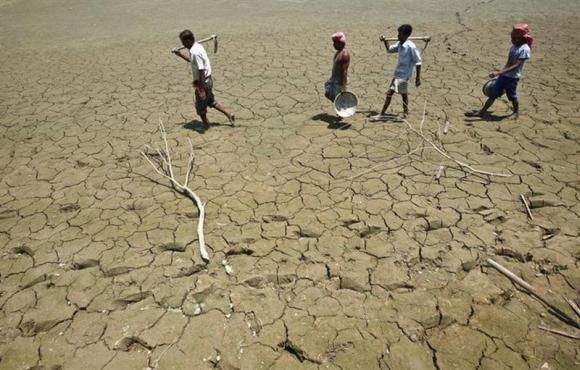 India on Sunday hailed the outcome of the climate summit, saying the deal reached has addressed the concerns of the developing countries and given them enough space to grow and take appropriate nationally determined steps to combat global warming.
India on Sunday hailed the outcome of the climate summit, saying the deal reached has addressed the concerns of the developing countries and given them enough space to grow and take appropriate nationally determined steps to combat global warming.
"We are happy that the final negotiated statement at COP20 in Lima has addressed the concerns of developing countries and mainly the efforts of some countries to re-write the convention has not fructified," Environment Minister Prakash Javadekar said.
Negotiators today adopted a compromise draft for national pledges to cut global carbon emissions at marathon UN climate talks at the Peruvian capital here that addressed all of
India's concerns and paved way for a new ambitious and binding deal to be signed in Paris next year.
Indian delegation led by Javadekar worked overnight, engaging with developed as well as developing nations to reach the deal taking into account India's concerns.
"We played a very proactive role. Last two nights, we were awake and we remained actively engaged with developed as well as developing world," the minister said after hectic negotiations by officials from 194 countries for 14 days.
"It (deal) gives enough space for the developing world to grow and take appropriate nationally determined steps," he said.
He said the final draft reached after the talks, which ran into two days of extra time, has paved the way for a Paris Agreement to be arrived next year on the basis of principles of equity and differentiated responsibility.
"The final draft also clearly mandated the developed world to take more firm financial commitments to scale it up to $100 billion per year from 2020. Developed world is also mandated to provide resources for technology development, transfer and capacity building," he said.
The developed world will have to take responsibility for action in technology and capacity building and to that end they will have to provide resources. On Green Climate Fund, he said the developed countries have given firm commitment.
"The financial treaty which was passed has more clarity. Now it is mentioned that they will provide and mobilise funds. So it will be aggressive public financing," Javadekar told PTI. "There is a greater role for public finance for Adaptation Funding," he said.
Javadekar claimed that India also succeeded in removing the provision in the earlier draft calling for ex-ante review of actions of even developing countries. "The aspirations and main concerns of the Least Developed Countries and developing countries are addressed," he said.
India pro-actively engaged with the developed as well as developing world to arrive at a negotiated settlement based on the principles of the convention and the whole edifice will continue to be under the convention.
BASIC countries -- Brazil, South Africa, India and China-- met five times, LMDCs (Like Minded Developing Countries) five times and stood firm on ground, he said.
"There was an issue of loss and damage. Whatever developing world wanted ultimately remained intact. This is a good way forward for Paris," Javadekar said, adding the new deal created base for equity and differentiated responsibility.
The draft does not contain any information about an ex-ante review process of Intended Nationally Determined Contributions (INDCs), instead leaving it up to individual countries.
"INDCs will be nationally determined...We projected India's achievements at the summit," he said, adding India made a strong pitch for technology without IPR (Intellectual Property Rights) cost "which we could win".
"Predominantly developing countries demands were met. I think it is a good way forward for Paris. ...it will not be lopsided anymore," he said.
"I am expected to reach New Delhi on Tuesday and will give report to the Prime Minister immediately thereafter," Javadekar said.











 © 2025
© 2025